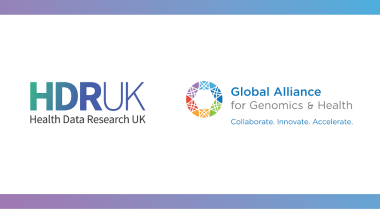Reflections on Better Care Insight Sharing Day – 14/7/22
26 July 2022 | Author: Rosanna Fennessy, Patient representative
The recent Better Care Insight Sharing day was a wonderful opportunity to hear about the diverse and inspiring work being carried out across the many projects within the HDR UK Better Care National Priority. As a patient and public partner, I sit on the steering committee for Better Care and attend monthly meetings of the core team where the focus is predominantly on longer-term strategic planning, rather than the work of ongoing projects. However, as a patient and public partner, one of my key concerns is that the projects funded in this workstream are inspired by, and ultimately result in, ‘better care’. The recent Insight Sharing Day provided the opportunity for me to see this for myself.
The work presented in the Early Career Research (ECR) showcase demonstrated how health data is being used to improve outcomes both for current patients, and those of the future. Importantly these were described in ways that are particularly meaningful to those of us with experience as patients or carers. The presentations included research to ensure better understanding of the care sequences of vulnerable people during the pandemic, and the potential dangers of prescribing multiple anticholinergic drugs to people with complex conditions. Behind the headlines of these studies are complex data manipulations, but for those of us in the public domain, it is how this improves care and outcomes that are cause for excitement. In addition, we also heard about innovative studies related to AI standards and work to provide clarity and greater explanation of mortality patterns in the research database CPRD, both of which will be the precursors to ensuring patient safety in the future.
Particularly important for the patients of the future, and a topic close to my own heart, is that of mental health in young people. As a former secondary school- teacher and counsellor, I am delighted to see this as a major area of research which was presented by colleagues from The Health Foundation Networked Data Lab (NDL). The topic was identified as a priority NDL research area by patients, the public and members of the NHS, involved in the initiative, and aims to use data to improve our understanding of mental health risk particularly for young people. However, the NDL team also highlighted the complexities of working with data in this field, and the need for systems to be more ‘joined up’. It is always a constant surprise, and source of frustration, to patients and the public that this fragmentation exists, and opportunities to highlight this by demonstrating the difficulties it causes are definitely welcomed.
Finally, there were discussions about the importance of both regional and national collaborations, along with the importance of maintaining the ethos of Better Care within HDR UK in the future. A fitting end to an inspiring and enjoyable morning. Going forward we must ensure that this amazing work is adopted by practitioners and embraced by patients and the public. By keeping the focus on how these uses of data represent Better Care, will help to make this happen. Thank you to all the contributors.




